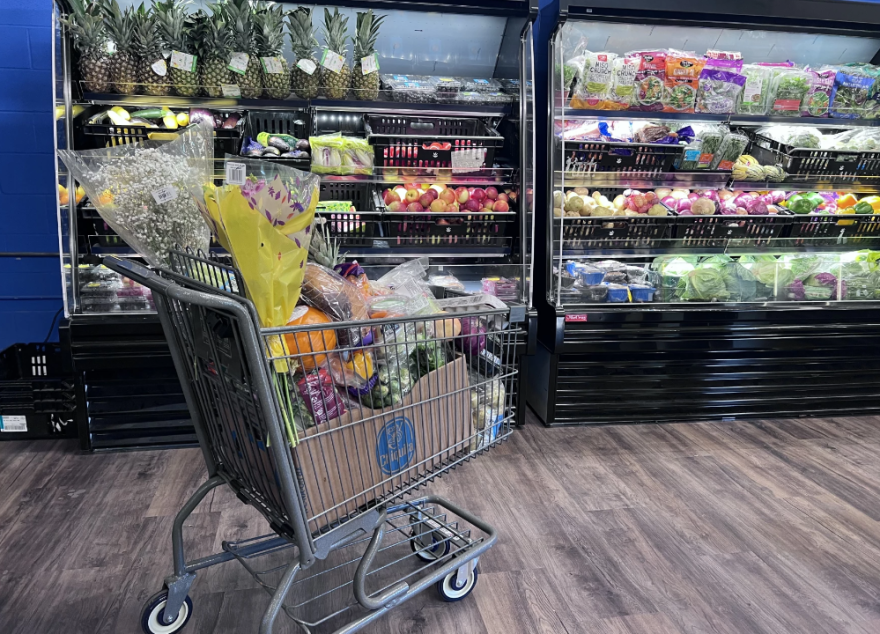Many states, including New Hampshire, distributed full SNAP payments over the weekend.
The November payments came a week late, after being paused during the ongoing government shutdown and following federal court orders last week to fully distribute food assistance. Over the weekend, the USDA ordered states to return the distributed benefits, a decision that was later blocked on Monday in federal court. The Trump administration continues to appeal to the U.S. Supreme Court.
But on the ground in New Hampshire, the weekend’s judicial ricochet was less of an immediate concern to advocates and enrollees once EBT cards were refilled on Saturday.
“It was a big relief,” said Frederick Bisson, a SNAP enrollee from Berlin. “We were really concerned on how we were going to survive the month.”
Laura Milliken, who leads New Hampshire Hunger Solutions, said food insecurity in the state is a much larger problem than just the shutdown, especially recently. She said she has heard from pantries statewide that demand has jumped, with some sites seeing their clientele double in the past year. She attributed this increase to rising prices for food, housing and child care.
“More and more people are depending on pantries to supplement their food dollars,” Milliken said.
She said SNAP typically doesn’t cover someone’s entire grocery costs for a month, instead helping them get closer to making ends meet.
“This whole crisis underscores how incredibly important SNAP is,” Milliken said. “Not just for food insecure people, but also for our local economies, our retailers, and for the health of all of us.”
Beyond the government shutdown, the federal reconciliation bill passed this summer cut SNAP by $187 billion, the largest slash to the program in its history, according to the nonpartisan Congressional Budget Office. The new rules will block aid from legal immigrants with humanitarian status; tighten work requirements; and change how benefits are calculated, which experts say will put the program out of step with rising food prices.
Nov. 1 was the deadline for the state agencies that administer SNAP to implement those changes, but according to Milliken, it is not yet clear when those new rules will actually go into effect.
The state’s stopgap plan food assistance, which includes mobile food pantries and food box distribution, will continue through Nov. 14, according to the New Hampshire Department of Health and Human Services.
Additional reporting from NHPR's Jackie Harris








